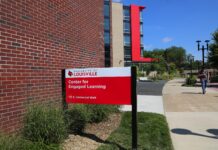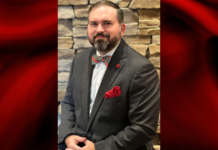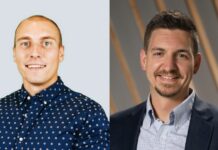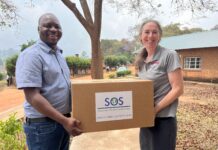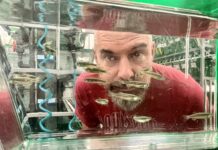LOUISVILLE, Ky. – The internet has had a significant impact on medical research and practice, allowing researchers to collect data on a much larger scale and conveniently provide certain types of health care. This week, audiologists, specialists in hearing disorders, from around the world will meet in Louisville to discuss benefits and pitfalls of using the internet for research and hearing health care (telehealth) for individuals with hearing impairment.
Jill Preminger, Ph.D., director of the Program in Audiology at UofL, is co-chair of the Third International Meeting on Internet & Audiology, July 27-28 on UofL’s Health Sciences Center campus. It will be the first such meeting outside Europe.
The first two meetings were organized by Swedish researchers, Gerhard Andersson, Ph.D., and Thomas Lunner, Ph.D., in 2014 at Linköping University in Sweden and in 2015 in Denmark. Preminger presented talks at both conferences and was asked to co-chair the first one to be held in the United States. Ariane Laplante-Lévesque, Ph.D., of Eriksholm Research Centre in Denmark and Linköping University in Sweden also is an event co-chair.
“I attended the first meeting because I was beginning to conduct research in which I hoped to develop an internet-based rehabilitation program for adults with hearing loss,” Preminger said. “At the second meeting, Dr. Lunner asked if I would be interested in hosting the next meeting. They wanted to bring the meeting to the United States in order to open it up to a new audience.”
Research audiologists and engineers, as well as clinical audiologists and student researchers are expected at this year’s event from the United States, Canada, Europe, South America, Africa and Asia. Consistent with the event’s focus, five presentations and more than half of the 84 attendees will participate from remote locations via internet connections.
Conference sessions will address four themes: Barriers and facilitators to telepractice, ethical issues related to internet-based research and services, big data, and methods for research and service delivery.
Elizabeth Buchanan, Ph.D., director of the Center for Applied Ethics at the University of Wisconsin – Stout, will give a keynote address on “Ethical Issues related to internet-based research and service delivery.” Internet-based programs to collect data and to provide clinical service can reach many more individuals, but new programs must consider the ethical issues that may arise. Buchanan will discuss whether it truly is possible to get informed consent for internet-based research or clinical service, and how to protect the privacy of participants and patients in online discussions.
Harvey Dillon, Ph.D., director of the National Acoustics Laboratory in Australia, will deliver a keynote via remote broadcast on the “Potential of Large Scale Data in Hearing Rehabilitation.” With the internet it now is possible to collect “Big Data,” from participants across a country or around the world. Dillon will address concerns about ethical and legal issues related to collecting data across countries as well as exciting possibilities for very large datasets that will allow for better decisions about the effectiveness of treatments across diverse populations.
The conference is sponsored by the Oticon Foundation and through a NIH (NIDCD) Conference Grant (1R13DC016547-01). Oticon, Inc., creates hearing aids, cochlear implants, other implantable hearing devices and diagnostic equipment related to audiology.
###
About the Audiology program at the University of Louisville
The University of Louisville developed and implemented one of the first Doctor of Audiology (Au.D.) degree programs in the nation. The program has received national attention because of its early inception as well as the medical and business model used as the basis for instruction. Clinically, the program continues to set the community standard in the provision of hearing and balance care services, particularly in the areas of new technologies and pediatric services. The inclusion of the doctoral students in the clinical environment is an integral part of the program. Faculty members continue to be leaders on a national level in the development of the effective classroom and clinical teaching models through involvement in national committees and programs.










